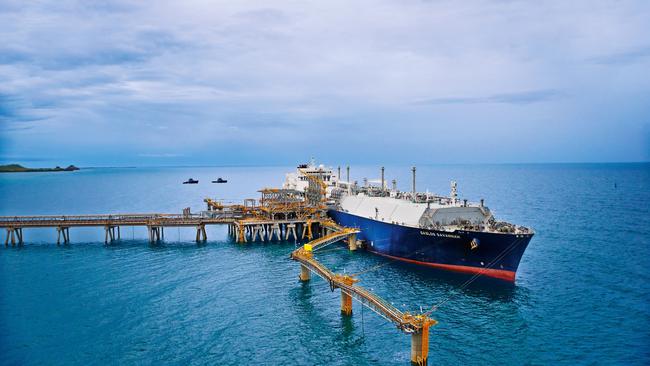Oil Search hit with pay protest
A majority of shareholders voted against a bonus package seen out of step with last year’s oil slump regarded as the biggest downturn in a generation.

Oil Search has suffered a big backlash against its remuneration report, with a majority of shareholders voting against a bonus package seen out of step with last year’s oil slump — regarded as the biggest downturn in a generation.
About 54.1 per cent of votes were cast against the group’s remuneration report at its annual general meeting, although it was only advisory as the company is incorporated in Papua New Guinea and not bound by the Australian Corporations Act.
“As a voluntary measure, in the spirit of transparency and good governance, we put forward the remuneration report to members for an advisory vote,” Oil Search chairman Rick Lee told the AGM.
“We understand from your response that some concerns remain and the company will take this on board for future consideration.”
The company changed its deferred short-term incentive scheme for the 2020 financial year whereby 67 per cent of the bonus could be awarded, compared with 50 per cent previously.
Pay increased for many of the executive team even in a year that saw a steep fall in crude demand spark plunging crude prices and forcing the producer to launch an emergency $US700m capital raising and slash jobs.
Managing director Keiran Wulff also suffered a sizeable protest vote on his pay terms. Over 31 per cent of shareholders voted against the approval of 308,544 restricted shares, 104,020 alignment rights and 386,363 performance rights.
Oil Search recorded a modest $US22m ($28.4m) annual profit in February, as its average LNG prices slipped by 32 per cent over the year and oil declined by 41 per cent.
Taking into account a previously advised writedown hit taken at its half year results, net profit after tax fell to a loss of $US321m in 2019 from a $US312m profit a year prior, missing consensus of a $US299m loss.
The company is now focused on delivering two big growth projects over the next few years. A final investment is due on its Pikka oil development in Alaska due by the end of 2021 and a decision is expected in 2023 on Papua LNG, which aims to boost PNG LNG’s 8.8m tonne a year output by a further two-thirds in 2027.
The immediate focus for Oil Search is to trim its 51 per cent share of the Pikka project and also line up its share of funding against a backdrop of the Biden administration seeking to clamp down on new Alaska oil leases.
The company cut its planned investment spending for the 2021 financial year and recorded a quarterly revenue lift amid higher LNG prices.
It lowered its investment spending target by $US75m-$US95m after deferring work, including the rebuild of the Kutubu refinery in Papua New Guinea. It now expects investment expenditure of $US250m-$US350m in 2021.
Spending was cut due to cost savings and the effects of travel restrictions in PNG with investment on production trimmed to reflect delays in major work programs while exploration and evaluation expenditure was lowered due to less expected activity.
Oil Search shares fell 3c, 0.8 per cent on Friday, to $3.80.


To join the conversation, please log in. Don't have an account? Register
Join the conversation, you are commenting as Logout